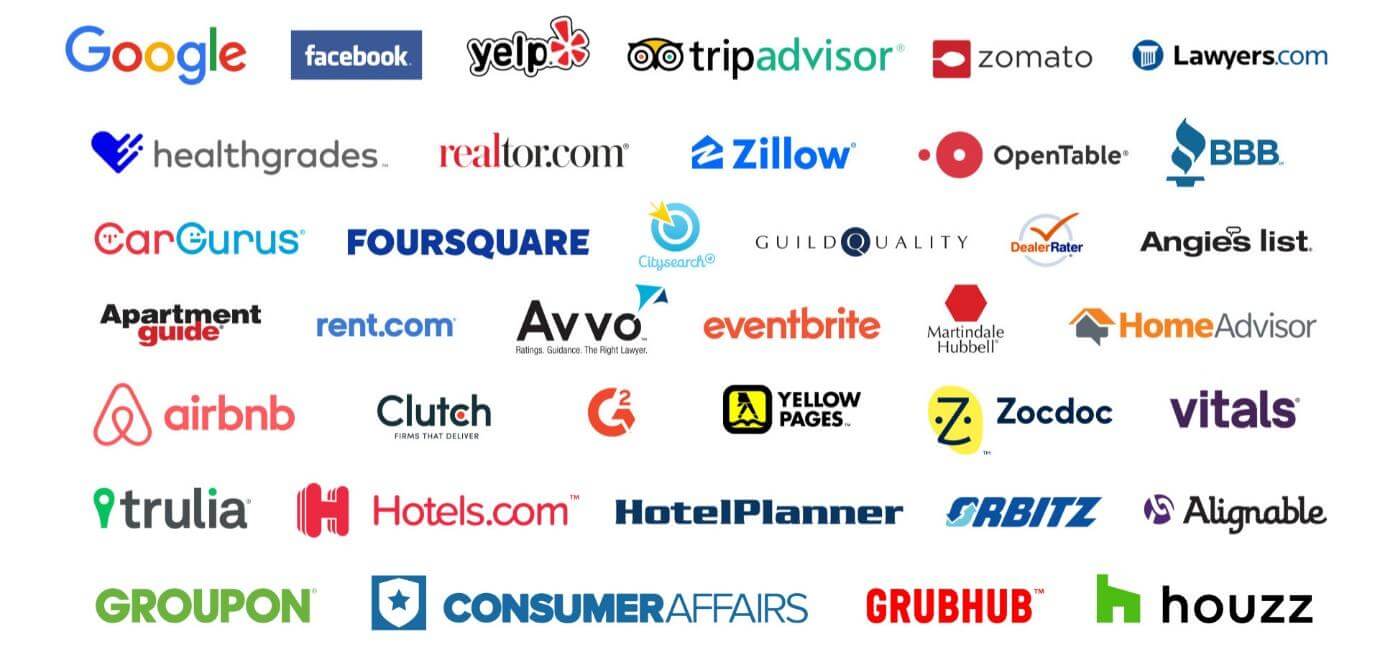Contents
There’s no doubt about the importance of search engines (SE) in our lives today. A lot of modern people wholly depend on them (mostly just one – Google, but that’s beside the point) to survive and remain a functional human.
Search engines gather and deliver us information from all over the internet quickly and in a convenient way. Due to this, we can’t even imagine living without them anymore. They help us form our opinions on different matters, and this is especially true for when we want to buy things.
Even when we’re interested and actively want to buy some product, we still commonly check out the online customer and professional reviews, unboxings, durability tests, service trustworthiness, and so on to assess it well.
Without well-managed online brand identity, there’s not even a point in investing in SEO for your business’ website. Let’s examine how the online reputation of any online service can influence the way that your website might (or might not) show up on the first pages of people’s searches.

Factors Affecting Search Engine Rankings
As of now, probably every professional marketer on Earth knows that SEs have advanced algorithms which figure out what website should go on top or below of the search results. Of course, we can manipulate and take advantage of this system by creating websites and content exploiting the aspects.
Here are some of the factors that SEs assess to produce their search results:
- The absence of hidden text.
- Website flow.
- Content originality.
- Website’s load speed.
- The number of hyperlinks.
- Website’s performance on various platforms.
- Semantic core of each page.
- User interactions.
- Website’s standing in user-rated reviews.
As you can see, how well (or badly) your website is reviewed influences its standings in search results. This means that even a couple of 1-star reviews among a hundred 5-star ones will still affect the SE results for your website.
Google, Bing, Yandex, and many other SEs value user review’s quite a lot because they’re an opinion of a real customer that has experienced the service. In today’s world of purely SEO-focused spam texts, the administrators of various SEs have definitely given more weight to user feedback.
This was even proven with a fully-fledged review that only supported this notion. The moderate approach to SEO-concentrated marketing combined with proper online reputation equates to the top positions in the search engine results.

Online Reputation’s Importance for Internet Brand Success
Before the Internet, there was not much that a dissatisfied customer could do. At best they could go to the service provider and fill their book of complaints up, as well as advise their friends and family to stay away from some company. However, this has definitely changed with the introduction World Wide Web into our daily lives.
About 80% of average consumers always check online reviews before they buy most of their products. In actuality, why shouldn’t they do it? It’s a completely logical thing to do when you have the access to impressions of customers who already bought the thing you want to purchase.
Online reputation management is essential to the success of your business and for it to thrive in the internet environment. Just consider the following aspects of it that also relate to SEO and influence your website’s standings in search results.
1. No Way to Escape Customer Reviews
The initial trust and following disappointment with various dubious online services led to people being extremely careful as to what they buy and from whom. This fuelled the creation of numerous online review websites and their success nowadays.
Online customer reviews have become such a common thing, that even the SEs implement their own versions. So, you have third-party reviews, as well as the review sections in the Search Engine itself that pop up right beside the products that the customers are looking for.
However, that’s not all. Many online shops and services have taken to transfer (partially or fully) to social networks like Instagram and Facebook. The comment systems on those platforms basically turn into review and feedback sections for brands.
Josh Coleman, Head of Customer Service Dep. at Grademiners.com, one of the leading essay writer service, says: “As you can see, there’s no escaping the fate of dealing with customer reviews as a service. They will always show up next to the search results for your business. By disregarding online reputation management, you’ll only be shooting yourself and your brand in the foot. Especially for small services, how they address their positive and negative reviews will define their future success”.
2. Customer Feedback Improves Conversion
Up to 90% of potential customers examine the existing client review searching for positive reviews (3, 4, 5 stars and their analogs in different rating systems). If the reviews are plenty, and only a small portion of them are negative, then such potential clients have a much bigger chance of choosing your services and offerings.
However, if reviews regarding your brand are mostly negative on various platforms or there are no reviews, then you’ll have a lot of trouble converting potential customers. The thing is that both negative review or their lack overall seems very sketchy to most people nowadays.
Of course, that’s usually not the case, and a lot of services are legit – it’s just that they didn’t have a lot of exposure yet. Nonetheless, due to the increased wariness of today’s consumers, this option isn’t even considered by people, so, they move on looking for other options. Still, this can be partially addressed with the special SE tools (like Google My Business).
3. Reviews Are Social in Their Essence
As the previous decade and a half have shown us very clearly: people are extremely social beings. Even though we’re all often separated by a screen in front of us, we still socialize, just via the means of social networks. How is this relevant to online reputation? Well, the thing is that reviews are very social in their nature. It’s basically a person (or people) expressing either experience with some product, the product’s initial quality, or their inner impressions.
It’s eerily similar to when your friend comes to you and recommends you some incredible item they’ve used. Only that reviews come from complete strangers and the recommendation is mediated through the Internet. Even if you’re doubting this idea, think about how many brands are on the social network now and that people directly see what their friends and family like and dislike.
Marketing and branding via social media have been on a steady climb throughout the past decade – a study found that almost 50% of social network users in the USA have bought from Facebook stores. The brands transitioning to social networks are an incredibly positive development for online reputation management.
Social networks enable quick, efficient, and visible communication between the brand the customer. This way, even the negative reviews can be addressed and fixed by your customer service. This will become an incredibly impactful trust factor for your potential customers and, again, will only increase conversion.

How to Keep Track of Online Reviews?
Ok, so we’ve established the importance of online reputation management for the successful SEO of your business. However, how would one even deal with all the reviews being left online? If you’re a small-to-mid-sized service, then your users will daily create at least a dozen of reviews online.
Well, luckily, there are some strategies to make this process of addressing all the incoming reviews easier. They’re as follows:
Utilizing Google Alert. It’s a tool that will send you updates whenever your brand is mentioned anywhere. This will allow you to mitigate problems incredibly quickly.
Executing company name searches. This method is all about regularly doing a search of your brand on the biggest platforms. This is quite time-consuming, and you’ll have to do it every other or two days.
Employing social network management systems. A majority of such software tracks mentions of your brand and lets you address them from a single dashboard in addition to all the usual social network management features. However, such software solutions are quite pricey.
What’s Next?
To sum up, combine safe SEO practices with efficient online reputation management. This will possibly push your website(s) to the top of search engine results. Definitely don’t ignore both positive and negative reviews or try to use “black hat” SEO – it can lead to your website being excluded from the search results.

